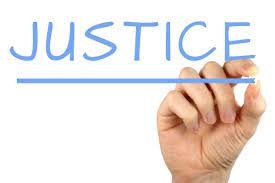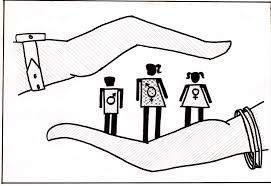
The concept of “gender” and “justice” if taken together, would mean different things to different people. The idea of “gender justice” is a global phenomenon and not just limited to a particular region. It is a concept not only relevant for academic discourses but relevant with regard to the most trivial day to day aspects that we come across. There is enough historical evidence to suggest that during the ancient times, men, women, non-binary, transgender etc were treated at equal pedestal. The need for “laws” or “justice” arose only when inequalities and discrimination became rampant.

Gender inequalities can manifest itself in various forms like unequal pay, domestic violence, sexual harassment, difference in literacy rates and so on. These concepts make up believe that women as a community are the most vulnerable group. Not denying the vulnerability, given the fact that COVID had impacted both the groups differently but we should also keep in mind that gender is largely a social construct. Women have suffered harassment, torture and gender specific violence but “gender” is beyond the concept of male or female. Gender Justice would also mean giving equal opportunities to all the sections of society with all kinds of gender variations. This will include non-binary, asexual, lesbian, gay, bisexual, transgender and so on.

Feminism as a separate rhetoric, as many would say has been largely criticised for being too much focussed only on women upliftment and empowerment. Few of us realise that feminism does not only talk about women but also talks about gender neutral laws and toxic masculinity. Any discourse on gender justice, in my opinion is incomplete without reference to the vulnerabilities that men are exposed to as a result of discriminatory practices based on ones gender. One such glaring instance is where the men of the family are overburdened to provide for the marriage expenses (which invariably includes dowry) of their unmarried sisters. Some may not find anything wrong with the above-stated proposition but it stems for the age old belief system where men were considered to be the sole bread earners and women were supposed to only take care of the house. Similarly, offences of rape and sexual harassment affects both men and women.Justice delivery and equality of opportunities should not percolate down to granting privileges based on gender.
There are several debates and discussions going on rounds, especially on social media platforms where gender justice has reduced itself to the narrow conceptions of male v. female; where both the binary groups engage in endless debates about what constitutes women empowerment and what doesn’t. It’s high time to realise that any conception of gender of justice will be a farce unless it expands its horizon to include all groups and all kinds of discrimination. Any policy or law should aim to improve accessibility to justice and eliminating barriers to education and healthcare instead of random acts like making a social welfare scheme without reflecting on the actual beneficiaries of such schemes.
By- Prof. Ayesha Mukherjee
Assistant Professor
School of Law
